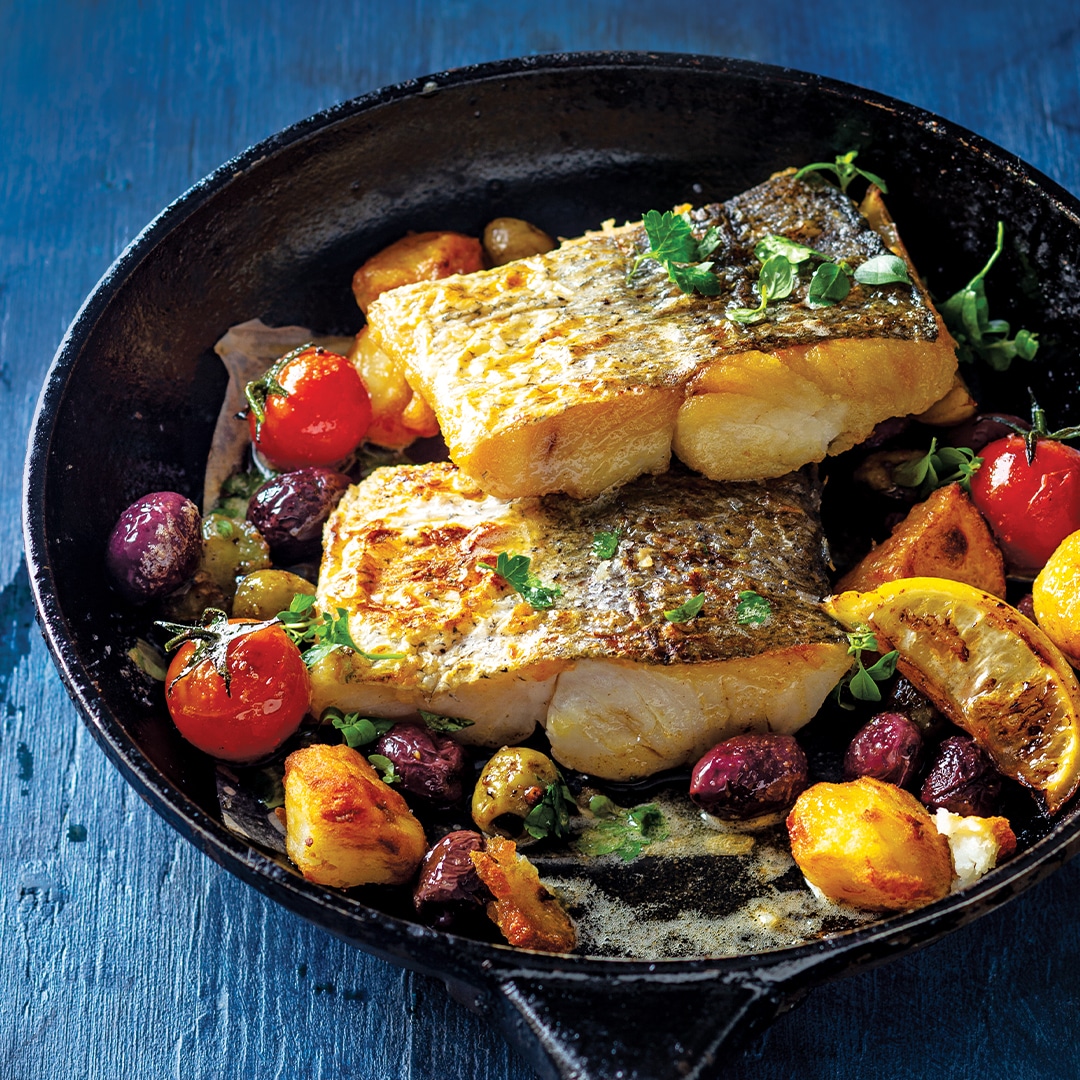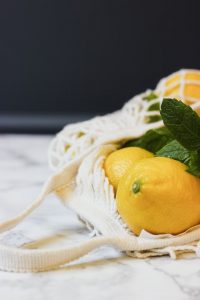Tricks of the trade that you never knew you needed.
Skin in the game
How to get crispy fish skin without it getting stuck to a pan!
- The pan: Place a square of baking paper on the heated oil in the pan. Top with another drop of oil and fry fish skin-side down on top of the baking paper. The paper won’t burn and offers a protective non-stick layer. (Remember – smaller medallions (10cm pieces) are easier to fry than entire fillets.)
- The fish: Pat the fish dry with kitchen paper. Season generously with salt (this will draw out excess moisture). Fry the fish skin-side down first. Don’t poke and prod it with your spatula. Shake pan to test if the fish fillet is cooked – it will easily move once it is ready.
Residual heat can ruin it
Food keeps cooking after you’ve removed it from the immediate heat source, so always transfer your food to a different spot after cooking (especially when pan-frying, grilling or searing) before it reaches the perfect doneness. Once removed, the residual heat travels from the outside in – cooking it that little bit further. Perfection!
7 Pro tips
- Don’t cook meat straight out of the fridge. Allow it at least 10-15 minutes out of the fridge to come to room temperature before you start cooking.
- Season as you cook, not just at the end. The taste of salt also changes when exposed to heat. Plus, you want the salt to permeate through the ingredients, not simply sit on top.
- Always heat up spices until fragrant before adding. This way, you eliminate the chance of tasting raw spices in your dish.
- Dry-fry mushrooms for a golden finish. Mushrooms are little sponges, absorbing all the oil in the pan. For crispy mushrooms, fry them in a dry pan over high heat, occasionally pressing it down with a spatula to ensure contact.
- Don’t overcrowd your roasting pan. Always place items in a single layer, making sure you can see the base of the tray in spots. Food releases water (steam) while cooking, so packing any ingredient too close to each other will cause it to steam, instead of roast.
- Freeze the hard cheese rinds of Parmesan or Gruyère, and when needed, add them to your stew or soups, allowing it to slowly melt and impart a creamy, rich flavour.
- Always cover pesto, tapenade or chilli paste in a thin layer of oil before storing in the fridge. This will keep air out, and the colour and flavour in!
Words by: Liezl Vermeulen
Photographs: Fresh Living Magazine




